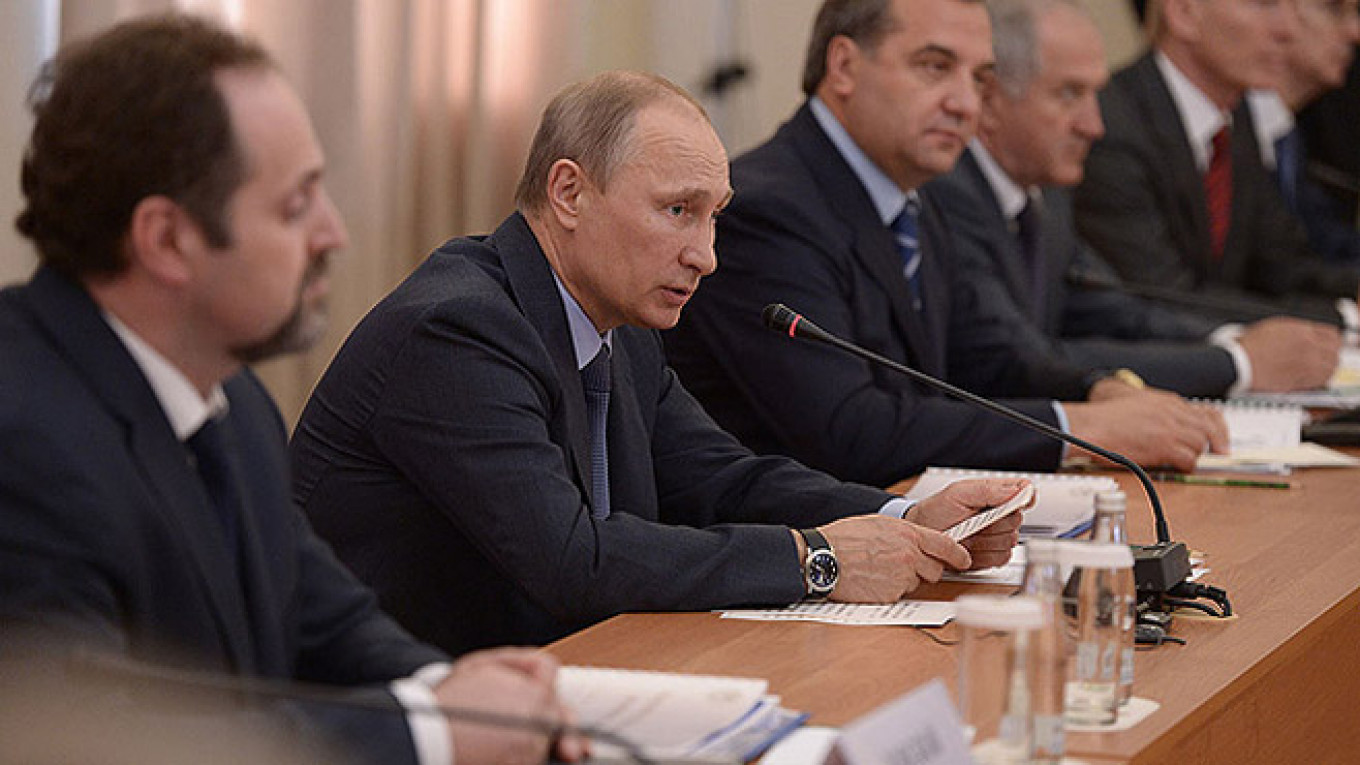If the people of Volgograd want to change their city's name to Stalingrad, Russia will respect their choice, President Vladimir Putin said when a war veteran asked about the issue during a D-Day memorial in Normandy.
"We will do as the residents [of Volgograd] say," Putin told a crowd of veterans on Friday, Itar-Tass reported.
Volgograd authorities announced on Saturday that the city council had not yet received any proposals for a name change referendum. Last year, municipal authorities voted for the city to adopt its former name for six days each year for commemorative purposes.
Volgograd was the site of the momentous Battle of Stalingrad, which took place between 1942 and 1943, and is widely viewed as one of World War II's most decisive battles.
The city adopted the name of Stalingrad in 1925 to honor Soviet leader Josef Stalin. In 1961, Stalin's successor, Nikita Khrushschev, changed the city's name to Volgograd in connection with the de-Stalinization process.
Following Putin's announcement, Russian political and spiritual leaders expressed support for a potential name change.
Deputy Prime Minister Dmitry Rogozin tweeted on Friday that he "never doubted the necessity of a return to great Stalingrad's name" but insisted it would be done "not for the sake of Stalin but for that of Stalingraders."
Archpriest Vsevolod Chaplin of the Moscow Patriarchate said on Sunday he would not object to a referendum on the city's name change, although he noted a preference for the name "Tsaryn," the city's appellation prior to 1925.
"The word 'Stalingrad' already lives independently of the word 'Stalin.' It is associated with a victory in a famous battle, with a part of our history," Chaplin said, Interfax reported.
Stalin's legacy, which encompasses both mass political repression and the defeat of Nazi Germany, remains a contentious issue in Russia to this day.
Contact the author at g.tetraultfarber@imedia.ru
A Message from The Moscow Times:
Dear readers,
We are facing unprecedented challenges. Russia's Prosecutor General's Office has designated The Moscow Times as an "undesirable" organization, criminalizing our work and putting our staff at risk of prosecution. This follows our earlier unjust labeling as a "foreign agent."
These actions are direct attempts to silence independent journalism in Russia. The authorities claim our work "discredits the decisions of the Russian leadership." We see things differently: we strive to provide accurate, unbiased reporting on Russia.
We, the journalists of The Moscow Times, refuse to be silenced. But to continue our work, we need your help.
Your support, no matter how small, makes a world of difference. If you can, please support us monthly starting from just $2. It's quick to set up, and every contribution makes a significant impact.
By supporting The Moscow Times, you're defending open, independent journalism in the face of repression. Thank you for standing with us.
Remind me later.


